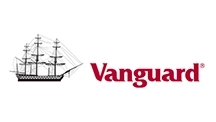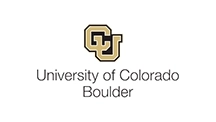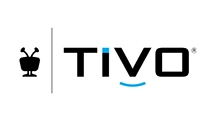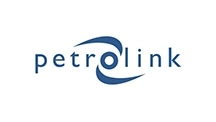FAQs
SSL Certificate and Code Signing Certificate FAQs
Whenever a user (client) tries opening a website that has an SSL certificate installed, the client's (user's) browser will go through the below steps:
- The client's browser will request the website's web server for identification verification.
- The server will reply by sending a copy of the SSL certificate.
- The client's browser will verify the copy of the SSL certificate and analyze whether the installed SSL certificate is trustworthy. Then, it'll send a message to the server regarding the same.
- If the server trusts the installed SSL certificate, then it'll send the digital acknowledgment to the client's browser telling to begin an encrypted session.
- Once the acknowledgment of digital signing comes, an encrypted session between the browser and server will start.
- Lastly, HTTPS protocol will get visible.
There are 3 types of SSL certificates:
- DV (Domain Validated) SSL certificate.
- OV (Organization Validated) SSL certificate.
- EV (Extended Validated) SSL certificate.
Furthermore, there are two more SSL certificates, Wildcard and Multi Domain SSL certificates, which are provided with extra features for managing multiple sub-domains and multiple domains, respectively.
An SSL certificate file consists of the digitally signed key. Likewise, the cryptographic key contains the below-mentioned information:
- Website URL
- Information regarding organization
- Information of an SSL certificate issuer
- The validity period of the SSL certificate
- Public Key
- A version of an installed SSL certificate
It depends upon your requirements. Anyone can install the free SSL certificate, as they're accepted by all the known web browsers such as Google Chrome. But, the free SSL certificate isn't an alternative to show complete trust, as it comes with certain disadvantages like:
- The trust factor is quite low and displays a basic security indicator.
- Only offered in DV (Domain Validation) type. So, it's not valuable to secure an e-commerce or company website.
- Lifetime is quite short. For instance, it's offered with the validity of only one to two months.
- Usually used for testing purposes.
Site seals are small images provided by Certificate Authority like Sectigo and Comodo once your purchased SSL certificate gets issued. Similarly, it's offered in two different types: static and dynamic. For instance, a static site seal is offered with DV (Domain Validated) SSL certificate. And dynamic site seal that contains company information and present time & date is provided with OV (Organization Validated) and EV (Extended Validated) SSL certificate.
In PKI (Public Key Infrastructure), intermediate certificates keep root certificates secure behind different security layers to ensure that the keys aren't accessible. Likewise, it works as a bridge between root certificates and SSL certificates.
Root Certificates:Root certificates are unsigned public key certificates or self-signed certificates used to identify the root CA (Certificate Authority).
An encryption key is a digital file used to control the encryption and sometimes decryption of information or data. It uses an encryption key and an encryption protocol like an SSL certificate to turn plain readable text into encrypted ciphertext, which lets you secure all the information and data you're transmitting over the internet.
SHA - 2 (Secure Hash Algorithm 2) is a set of different cryptographic hash functions with different hash values like 224, 256, 384 & 512 bits designed by the USA NSA (National Security Agency) was first published in earlier 2001.
The SSL protocol uses "asymmetric encryption," which relies on two types of encryption keys: the public key and another private key. The public key handles encryption, and another private key handles decryption.
The public key is publicly available, and it's part of the SSL certificate. It works in combination with a private key for making sure data transmitted over the internet is in an encrypted format, verified, and not tampered with at the time of transportation. And the private key is kept private, which is used to digitally sign your CSR and later confirm that connection with the server is safe and secure.
Wildcard SSL certificate is one type of SSL certificate offered by the certificate authority that helps secure one main domain and unlimited sub-domains without purchasing a separate SSL certificate for each sub-domain. For instance, you can secure:
- maidomain.com
- example1.maindomain.com
- example2.maindomain.com
- example3.maindomain.com
The multi Domain SSL certificate is an SSL certificate that lets you secure multiple domains using one single SSL certificate. Likewise, you can secure up to 250 different domains using a Multi Domain SSL certificate.
For instance, using a Multi Domain SSL certificate, you can secure:
- exampledomain.com
- exampledomain1.com
- exampledomain2.com
- exampledomain3.com
EV (Extended Validated) SSL certificate is the premium SSL certificate that offers the highest level of trust indication to the user. Similarly, to purchase an EV SSL certificate, you're required to have a website that deals with the user's sensitive financial information, like a credit card. In addition, your business should be running for three or more than three years consecutively.
Likewise, to get an EV SSL certificate, you're required to go through the stringent vetting process where CA (Certificate Authority) requires you to provide various business-related information and documents. However, an EV SSL certificate is like an investment, and it provides many trust indicators that help users feel confident about sharing their information with the site.
The DV (Domain Validated) SSL certificate is an entry-level SSL certificate that focuses on providing basic encryption needs and not authentication of the company or an individual. For getting a DV SSL certificate, users don't have to go through any stringent vetting process to prove business presence. Instead, users can get it issued within minutes by proving domain ownership.
On the other hand, OV (Organization Validated) SSL certificate is the one that validates your business/organization identity by verifying various documents like Government-issued registration documents, publicly available telephone numbers matching with a recognized Telephone directory, and more. Similarly, it's recommended for a business website that deals with sensitive data. It helps create a higher level of trust and confidence, as the business legitimacy is verified by the CA (Certificate Authority). In addition, company information is also displayed within-subject details of the installed SSL certificate.
E-commerce business deals with users' sensitive financial information like credit card or bank account details. Therefore, it requires a higher level of strong security standards, which helps keep such information secure. And to fulfill such requirements, an EV (Extended Validated) SSL certificate is the right option.
It helps create a perfect solution for making a trusted security environment within an E-commerce business as it helps establish trust and confidence with the user. Likewise, it also provides visible trust indications such as company name within the padlock and company details within the certificate subject details.
Mostly, all types of web servers, mobile and Desktop OS, support SSL certificates issued by certificate authorities like Sectigo and Comodo.
Site seals are tiny images like a trust badge provided by CAs (Certificate Authorities) once the SSL certificate is issued. Likewise, it comes in two formats, static with a domain validated SSL certificate and dynamic site seal, which shows company information and current date and time with OV & EV SSL certificate.
Furthermore, site seals offered by CAs (Certificate Authorities) help boost user trust and confidence as it conveys the message that the CA verifies the site and is trustworthy.
The SAN/Multi Domain SSL certificate allows you to secure multiple domains using one SSL certificate. Likewise, it helps save your time and money as you don't require to purchase an SSL certificate for each website or go through the repeating process of remembering the renewal date or vetting process and more.
Firstly, whether you want a warranty or not, it comes free of cost with the SSL certificate you purchase. Likewise, it's important because it conveys the message that if you choose to get your SSL certificate issued by the CA (Certificate Authority) and if anything goes wrong from their end during the installation process. For example, your website gets hacked, a data breach occurs and damages your site users and you. Likewise, if you prove it, then you can reclaim the warranty amount as compensation for the damage caused to you and your site users.
Every known and trusted CA (Certificate Authority) has passed certification, ensuring they're using required policies and procedures to make an SSL miss-issuance negligible. Henceforth, it's very rare if any SSL miss-issuance occurs, and if it does, then CA may go through a hard time, which can even mean losing the right to issue an SSL certificate and being distrusted by browsers.
The price of an SSL certificate differs from one brand to another, like the type of SSL certificate you want to purchase and the validity period. For instance, the EV SSL certificate is the most expensive, and the domain validated SSL certificate is cheaper.
Likewise, if you go for a domain validated Wildcard SSL certificate, it may get a little more expensive than a single domain validated SSL certificate. Lastly, the same SSL certificate with the same features and benefits can be offered in different price ranges depending upon the chosen Certificate Authority.
SSL certificates are offered in two encryption key strength sizes, 2048 bits and 4096 bits, which help make a strong and secure SSL connection between the web browser and web server.
Those who purchase OV (Organizational Validated) and EV (Extended Validated) SSL certificate, certificate authority (CA) like Sectigo and Comodo verifies business details of an applicant through an online government business registration database. Likewise, if, due to any reason, the important information is not verified through an online database, then CA may ask for some additional business registration documents.
On the other hand, business details aren't required for DV (Domain Validated) SSL certificate. Instead, the applicant has to verify domain ownership, which is done in a few minutes by simply clicking on an email received by the Certificate Authority.
Yes, it'll. Usually, the certificate authority needs your domain registration information to be publicly available. But, if you've kept the privacy setting enabled on your sites like Who.IS record, then applicant can go for an alternate method of showing their domain ownership using one of the pre-approved email aliases:
Likewise, once the CA receives the domain confirmation email, the applicant must click the links to verify domain ownership to satisfy the requirement, which takes a few minutes.
If you've purchased a DV SSL certificate, your DV SSL certificate gets issued within minutes once your domain ownership is verified. On the other hand, if you've purchased an OV SSL certificate, then you'll need to wait for 1 to 3 days to get your domain verified and get SSL issued. It's because EV SSL certificate applicants take around 1 to 5 working days to complete the verification process and get the SSL certificate issued.
Our CSR (Certificate Signing Request) guide is already available. If you face trouble and cannot generate it for any reason, you also have an option to generate it using the free CSR Generation Tool.
There's an option of 2048-bit and 4096-bit key root length. You can choose whichever you want at the time of CSR generation.
With the help of the CSR Generator Tool, enter required certificate details and click on the button "Generate CSR." Likewise, our tool will provide you with valid CSR along with the private key.
Likewise, make sure you're keeping your CSR, and Private Key on your website sever as both are required at the time of the SSL installation process.
The Private Key that you get with an SSL certificate is important, and it should remain secure. Henceforth, if you've lost Private Key, it's recommended that you reissue your SSL certificate by generating a new CSR so that you can get the new Private Key.
You can safely save your private key file on your server directory, hard drive, or PC.
You can decrypt your CSR information using the free online tool CSR Decoder. Likewise, it would be best to simply paste the CSR into the blank box given in that tool and click on the Check button.
If the private key doesn't match the CSR, you're requested to create a new CSR & private key. And, sadly, there's no quick solution for this mismatch.
If your CSR is missing one or more than one required field or contains any non-alphanumeric character within the required fields, it can fail CSR decoding.
No SHA – 1 algorithm is no longer used as it's not secure. Similarly, it's not even trusted by any popular web browser like Google Chrome, Internet Explorer, Mozilla Firefox, Safari, etc. And, it's recommended that you always choose to go with an SSL certificate with SHA - 2 as it has a new hash algorithm that complies with industry standards.
Users may come across a Firefox error message like a 'Secure Connection Failed' if there's a failure to establish a secure connection.
Suppose your website fails to display site lock correctly or does not provide correct information. In that case, it's recommended to contact Certificate Authority from whom you purchased the SSL certificate and inquire about it.
Sometimes, servers require another format of SSL certificate. Likewise, to change the format of the SSL certificate extension, you can go for the freely available SSL Converter Tool of our website.
It's recommended and easier to create new CSR on the new machine and have your SSL certificate reissued.
Before SSL installation begins on your web server, it's recommended you go through the below-mentioned steps:
- Buy an SSL certificate through a trusted CA (Certificate Authority) like Sectigo or Comodo.
- Generate the CSR and complete the validation process.
- Save your generated CSR and Private Key on your computer system or external hard drive.
- Store all your SSL certificate files like Sever, Intermediate & Root Certificate that you got issued by the CA (Certificate Authority)
- If required, download the Intermediate certificate bundle from the CAs website.
Usually, SSL certificates are issued by the CA (Certificate Authority). But, in addition, they have their own Trusted Root CA certificates, such as Sectigo and Comodo, which are known vendors for web browsers as trusted CA (Certificate Authority). Henceforth, their Trusted Root Certificates are mostly pre-installed in browsers, which helps establish immediate trust.
On the other hand, some CAs (Certificate Authorities) don't have their Trusted Root CA certificate within the browsers or don't have their own. Therefore, to gain the trust of such CA's SSL certificates, it's essential to use a "chained root." Here, a "chained root" are those SSL certificates that a CA issues along with the Trusted Root CA certificate, which helps the browser recognize Trusted Root CA. Likewise, it's not easy to install chained root certificates, and some of the webservers are not even compatible with them.
The installation of an SSL certificate differs from one server and device to another. Likewise, we've got a list of guides on installing an SSL certificate based on your server. So, if you don't want an SSL installation as a service, you can go through these guides to install it yourself.
You can go through an online SSL checker tool and know whether your SSL certificate is installed correctly or not.
Yes, we offer 24x7 technical support through email, phone, and chat if you've any queries or issues regarding the SSL certificate purchase or vetting process. Similarly, we also provide an SSL installation service if you want us to install an SSL certificate for your website.
SSL certificate offered by respected certificate authority like Comodo and Sectigo comes with a maximum validity period of 1 year. However, you can purchase a bundle for multiple years at a lower price if you want.
Renewing an SSL certificate is quite similar to purchasing a new SSL certificate. For instance, users must purchase, generate CSR, validate, and install the renewed SSL certificate. However, suppose you renew your SSL certificate before it expires. In that case, you may get an advantage of some discount, or you may be allowed to skip some validation process, which makes it easier to get an SSL certificate issued.
It depends upon the certificate authority you choose for your SSL certificate. For instance, certificate authority considers previous documents for completing the renewal process of SSL certificate if the details haven't been changed. Likewise, you'll need to provide additional documents to fulfill the requirement if it's outdated.
For instance, you can reuse your previously provided documents with the EV and OV SSL certificate if the original validation process completes within 13 months. And if you renew your SSL certificate after 13 months, you'll need to follow the entire process of submitting documents to complete the vetting process from the beginning.
Yes, there's no restriction on using the same CSR for renewing your SSL certificate. But, it's less secure, and due to that, it's recommended you create a new CSR and Private Key for renewing your SSL certificate.
A Wildcard SSL certificate helps secure one main domain with an unlimited number of its associated sub-domains. Furthermore, the Wildcard SSL certificate provides the same strong 256-bits encryption standard for the primary domain and all sub-domains. Therefore, it's among the recommended choices for securing websites with multiple sub-domains.
To secure sub-domains, the user must purchase a Wildcard SSL certificate, and then at the time of generating CSR, an asterisk is used. For instance, *.domain-example.com secures the first level sub-domain.
Some examples of securing different types of first-level sub-domains with the wildcard SSL certificate are:
- egdomain-name.com
- www.egdomain-name.com
- blogging.egdomain-name.com
- user101.egdomain-name.com
- newschan.egdomain-name.com
- loginpg.egdomain-name.com
- anotherexample.egdomain-name.com
Users are generally aware that the Wildcard SSL certificate secures an unlimited number of first-level sub-domains. However, many times question arises whether it's possible to secure second-level sub-domains like another-example.blogeg.egdomain.com. The answer is yes, it's possible to secure a second-level sub-domain, but you'll require to purchase another Wildcard SSL certificate.
Henceforth, by purchasing another Wildcard SSL certificate, you'll be able to secure second-level sub-domains like:
- Usr1.blog.domain-example.com
- Usr2.blog.domain-example.com
- Usr3.blog.domain-example.com
- Usr4.blog.domain-example.com
No, you can't secure SAN (multiple) domains using a Wildcard SSL certificate because the primary function of a wildcard SSL certificate is to secure an unlimited number of sub-domains, not multiple domains. Henceforth, it's impossible to secure a SAN domain using a Wildcard SSL certificate.
Please go through our CSR Generation Tool to generate CSR for your sub-domains (wildcard domains). And, if you're looking to secure 5 sub-domains like:
- blog.eg-domain.com
- news.eg-domain.com
- login.eg-domain.com
- usr1.eg-domain.com
- usr2.eg-domain.com
Likewise, the user will only need to generate the CSR for *.eg-domain.com.
To secure sub-domains of multiple domains, you'll need to purchase Multi Domain Wildcard SSL certificate offered by certificate authorities like Sectigo or Comodo. It secures multiple websites with unlimited sub-domains of multiple websites that you secure.
Suppose the user has purchased Wildcard SSL certificate *.eg-domain.com that wildcard SSL will only secure first-level sub-domains. However, if the user purchases a wildcard for *.eg1.eg-domain.com, then the wildcard SSL will help secure second-level sub-domains.
In other words, to secure second-level sub-domains, users will be required to purchase a wildcard SSL certificate to secure second-level sub-domains.
Yes, you can secure one domain with unlimited associated sub-domains using one wildcard SSL certificate. Likewise, you can even secure using a separate SSL certificate if you want. However, the Wildcard SSL certificate option isn't available as an EV SSL certificate, and you'll need to purchase a separate EV SSL certificate to secure your sub-domains.
You can use the same Wildcard SSL certificate to secure different physical servers and IP addresses.
All Multi Domain SSL certificate comes with a SAN feature that permits you to secure up to 250 domains.
Note: All SAN domain entirely depends upon the CA (Certificate Authority).
For instance, if you're looking to secure up to 10 FQDN, you can secure one domain and 9 SAN domains through one Multi Domain SSL certificate. Likewise, most Multi-Domain SSL certificate offers 2 to 4 free SANs in the package. Likewise, you'll need to purchase other additional SANs according to your requirement.
With the help of a SAN certificate, you'll be able to secure multiple domains such as:
- www.eg-domain.com
- eg-domain.com
- eg-domain2.net
- blog.eg3.org
- otherdomain-name.com
You can secure up to 250 domains using a multi-domain SSL certificate.
Yes, you can add wildcard domains using a SAN SSL certificate.
In the beginning, Microsoft partnered with some of the Certificate Authorities for creating Unified Communications Certificates (UUCs). However, due to advanced SSL technology, Microsoft Servers can be secured using a Multi-Domain SSL certificate besides UCCs.
CAs (Certificate Authorities) such as Comodo and Sectigo offer an SSL certificate with an unlimited server licensing policy. So, if you buy an SSL certificate from such CA, you'll be allowed to add as many IP addresses and servers as you want.
Yes, the issuing CA (Certificate Authority) like Sectigo and Comodo provides a site seal for all your SAN domains.
A code signing certificate is an X.509 digital security certificate, which works as a wax seal of a letter but in a digital format for your software, applications, and scripts. It allows software developers and publishers to safely distribute their developed software or application over the internet.
Furthermore, a code signing certificate helps boost the trust and confidence of users as it conveys the message that software or an application user is downloading or installing is coming from a trusted source and hasn't been altered for forgery purposes. Lastly, it helps secure software or application build using different platforms such as:
- Mozilla Object Files
- Microsoft Authenticode user and kernel mode files
- MS office Macro files & Visual Basic for Applications
- Microsoft Windows 7, 8 & 10
- Microsoft Office
- Adobe Air applications
- Java applications and java applets
No, you can't sign and secure E-Documents like Microsoft Word documents. Likewise, you'll need a Document Signing certificate for securing such E-Document files.
There are two types of code signing certificate Standard (OV) Code Signing certificate and EV (Extended Validated) Code Signing certificate.
Code Signing certificate offered by respected Certificate Authority like Sectigo and Comodo takes up to three days for Standard OV Code Signing certificate and up to five days for EV Code Signing certificate. Likewise, an OV Code Signing certificate is offered for both organizations and individual software developers.
If your login credential fails to work, you always have an option to reset your password. Likewise, if it fails, you can always reach us through an email [email protected] and let us know about your issue. And, we'll provide you with the solution.
For changing your order confirmation email address, you'll need to change your email address in your profile details, or else you'll require to send us an email at [email protected].
CheapSSLWeb.com provides a refund only if your refund request has been processed within the first 30 days of the original date of purchase. Likewise, once you process the request for the refund, our Support Team will process your request as early as possible and provide you the refund according to your choice, such as a store credit or refund to your account.
No, there's no limitation. You can purchase as many SSL certificates as you want. However, you'll need to fulfill the verification process according to your purchased SSL certificate.
At CheapSSLWeb.com, all major credit cards like American Express, MasterCard & Visa, and PayPal is accepted.
Our Trusted Clients





